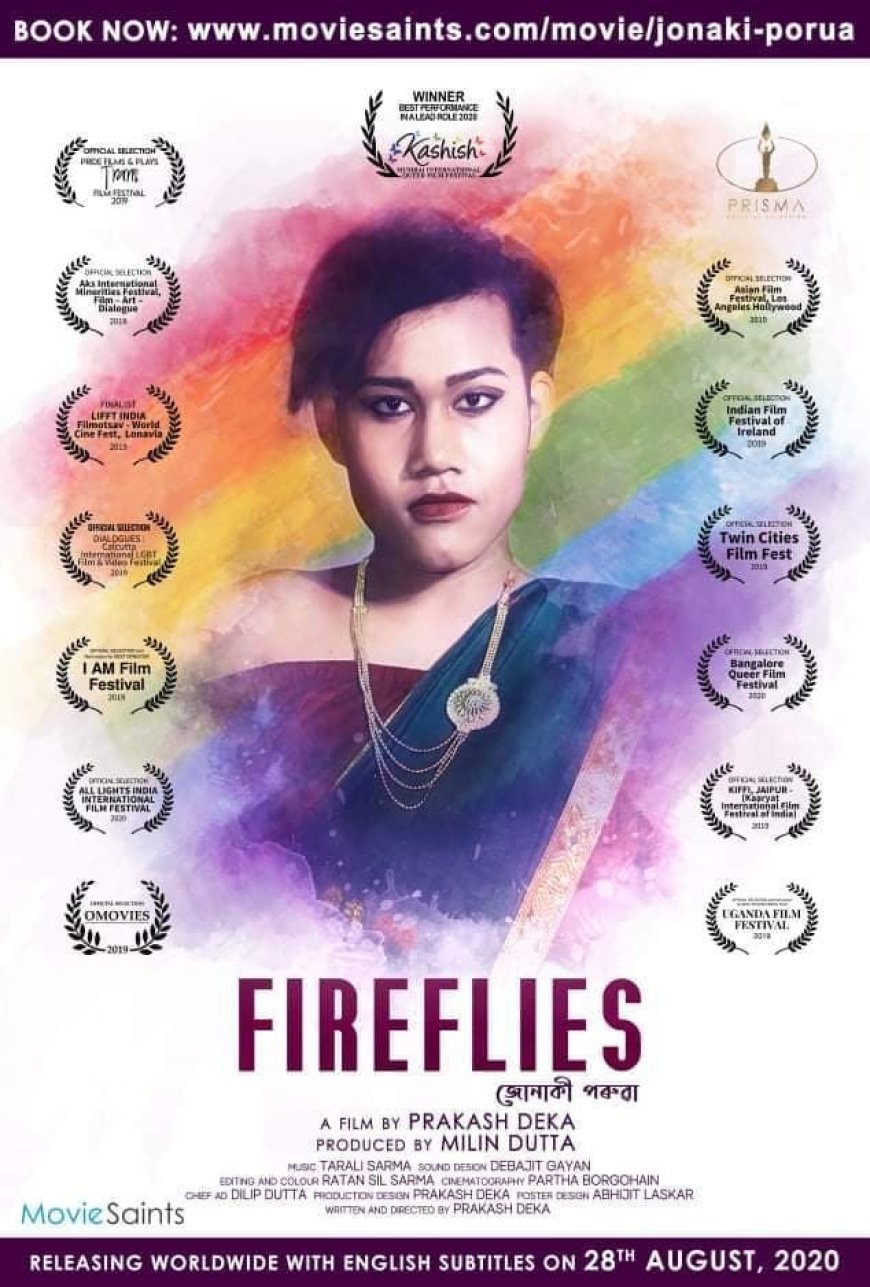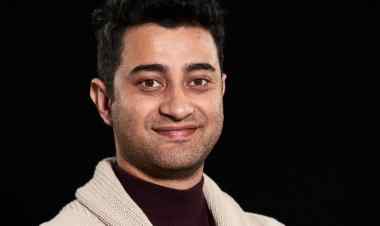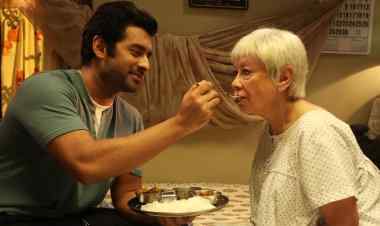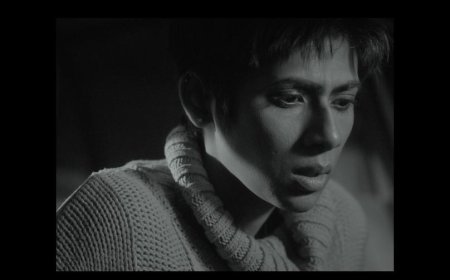Interview with MILIN DUTTA, producer of FIREFLIES – JONAKI PORUA
Veteran Indian film critic Shoma A. Chatterji takes an insightful interview with Milin Dutta, the producer.

Jahnu lives in a remote village along the banks of the Brahmaputra river in Assam. He is constantly poked at home and in school by family, neighbours and friends because though he is born male, he is extremely effeminate and is neither shy of showing this but also loves to show it off without embarrassment or awkwardness. His favourite dream is to collect money for a series of transgender surgeries to change himself to a female. His older sister Jhumu is also a female with a male psyche and a queer. Their mother constantly rues her destiny in having delivered a son who lives like a girl and a daughter who dresses and behaves like a male. This unhappiness is shared by their older brother Baba who keeps thrashing Jahnu every now and then holding him and Jhumu for their lack of honour within the village community. Their father is also sad. Then, one day, Jahnu is faced with the toughest decision of his life. Caught red-handed in a compromising position with a friend Palash he had fallen in love with. Jahnu is left in the lurch by Palash who disowns his connection forcing Jahnu to leave for the nearest town, Guwahati, to fetch his future and protect his choice of changing his sex. He becomes a sex worker and sends money regularly to his family in the village but cannot come back home. They are prepared to accept his money but not him.
Fireflies received a Special Mention at the 67th National Film Awards. The film's lead actor, Benjamin Daimary, also received a Jury's Special Mention for his performance in the feature film category. Fireflies, or Jonaki Porua is produced by Milin Dutta and directed plus written by Prakash Deka. Dutta, himself a transgender in personal life, decided to produce the film himself. He volunteered to talk about the film in a detailed interview.
The name Fireflies is symbolic, as the film is centered around a transwoman: a person with a doubly ostracized identity. People belonging to the trans feminine community, if they are "cis-passing" (which means people can’t tell if they have transitioned or not), have to navigate the world as a woman, which is often not easy. And if they are not cis-passing, they have to navigate the world as a queer person in a predominantly cisgender, heterosexual society. There is so much intersectionality and nuances to a trans-person's identity. Just like a firefly, which carries its own light to find its way in the dark — without waiting for the world around it to light up — a transgender person has to find that light within themselves to move forward. They often don’t have the luxury of waiting for the world to become more accepting. Instead, like the firefly, they must rely on their inner strength and light to guide their path.
In life there are certain moments—epiphanies, really—that just change how you see the world. One of those moments happened to me at a railway station. I met sister Prema, who works with the hijra community. That’s where I met a hijra person for the first time. It was one of those chance encounters, but it really opened my eyes to the kind of struggles transwomen in India face—just to exist, to survive with dignity. That very same day, later in the evening, I was invited to a cocktail party at a friend’s place. It was such a stark contrast. Earlier, I had seen transwomen living near the gutters, trying to make ends meet. And just hours later, I was in this polished, privileged space, surrounded by westernized, socially mobile Indian elite, so to say. And somehow, I felt like I belonged in both places. With the transwomen, I saw reflections of my own struggles as a trans person.
At the party, I realized that world wasn’t unfamiliar to me either—I’ve had access to resources, I’ve had a relatively smoother journey. And as a transman, I’ve also experienced a certain kind of invisibility—transmen often aren’t targeted the same way transwomen are, and that’s a kind of privilege too. That day made me stop to think: what would my life have looked like if I were born a cis man? Maybe it would have been easier in some ways—I don't know. But I do know that I wasn’t born a cis man. I was born a transman, and that has shaped how I experience the world. And standing there, between those two realities—the pain of the trans community and the comfort of social privilege—I realised that the space I occupy, the mobility I’ve had, also comes with a responsibility. If I can tell stories, then I have to tell the ones that don’t often get told. And it was actually at that cocktail party that I met Prakash Deka, the director of this film. We talked, and he just said—very simply but with a lot of conviction—that he would tell stories about trans lives in Assam. And not only that, but that this film would go on to win awards. And he meant it—he followed through.
For me, this film isn’t just a creative project—it’s part of a much larger personal journey. One that really began when I was a kid. A kid who often felt lost, like he didn’t quite belong, and sometimes even felt like he didn’t matter. This film—centered around transgender identities—is my way of honouring that kid. It’s my tribute to him, and to all the others like him. It’s been a long road to understanding who I am, how I fit in, and what I owe to others in my community. In many ways, this film feels like the destination of that journey. And that’s why I made this film. This is the first full-length feature film in Assamese language.
Jannobi’s story is a combination of the stories of many trans people, especially trans women from Assam. So when you see Jahnvi on screen, you’re not just seeing one person’s journey — you’re seeing the struggles, the achievements, the sorrow, and the laughter of many trans people brought together in one character.
The actor, Benjamin Daimary, as far as we know, identifies as gender-fluid, so he is a queer actor. While doing the movie Jonaki Porua, they realised they were more than just a gay man; that is, they realised that they were a gender fluid person. The film was shot in Nalbari, Assam. Since we had a limited budget, we had to make the most of the resources we already had. In some of the shots, it was actually the director’s own village.
The director is someone who is deeply passionate about trans rights and he wanted to use his skills in storytelling to bring more visibility and understanding to the trans community. From what I know, he also faced bullying growing up, and maybe that’s what makes him especially compassionate and sensitive toward the experiences of trans people. He directed and scripted the film. Telling stories of transgender people was his vision and his passion though in no way was he directly connected to transgender before this film. I helped bridge that gap by connecting him with trans individuals. So, in a way, it was a collaboration — we built it together.
The project took less than a year. We connected during COVID and had the time to focus on it. So, under one year we went from concept to censor certificate. Getting the censor certificate wasn’t a big issue, but promoting and distributing the film was challenging. Since it was during the pandemic, we lacked prior experience, had no professional distribution team, and we're working on a limited budget — so the film didn’t get the advertisement it deserved. And it had a theatrical release only in the North East.
Initially, we just wanted to make a documentary, but it gradually evolved into a feature film. Our budget was ₹15 lakhs which later increased to ₹20 lakhs—but that wasn’t enough to distribute the film on a larger scale, especially since art films with a social message are already hard to market. We had really hoped this film could be shown widely in colleges—because if it saves even one life, that matters to us The film was screened at 33 international film festivals, and we showed it wherever it was free. We had no idea how to distribute it nationally, and when we approached platforms like Amazon and Sony LIV, we were told they needed better picture quality, better cameras. We were also told that Assamese films don’t have a large enough viewership. As producer, I was making my debut I was new in this line, I used to live and work in the US, and took an early retirement to work for social welfare, so this was new territory for me, so to say….
I feel genuinely happy that this film happened in the first place, and that I got to be a catalyst in making it come to life—along with so many others, of course. The fact that it went on to win awards makes me feel proud that its message and potential were recognised.
The message is simple: to find the strength within yourself—just like a firefly. This film is, in many ways, a poetic message from all of us who made it, to transgender people—especially transgender youth—and to queer individuals everywhere: you are beautiful. Just find that light within yourself, that inner strength we often talk about, and you will find your way towards a fulfilling life.
***
What's Your Reaction?

































































